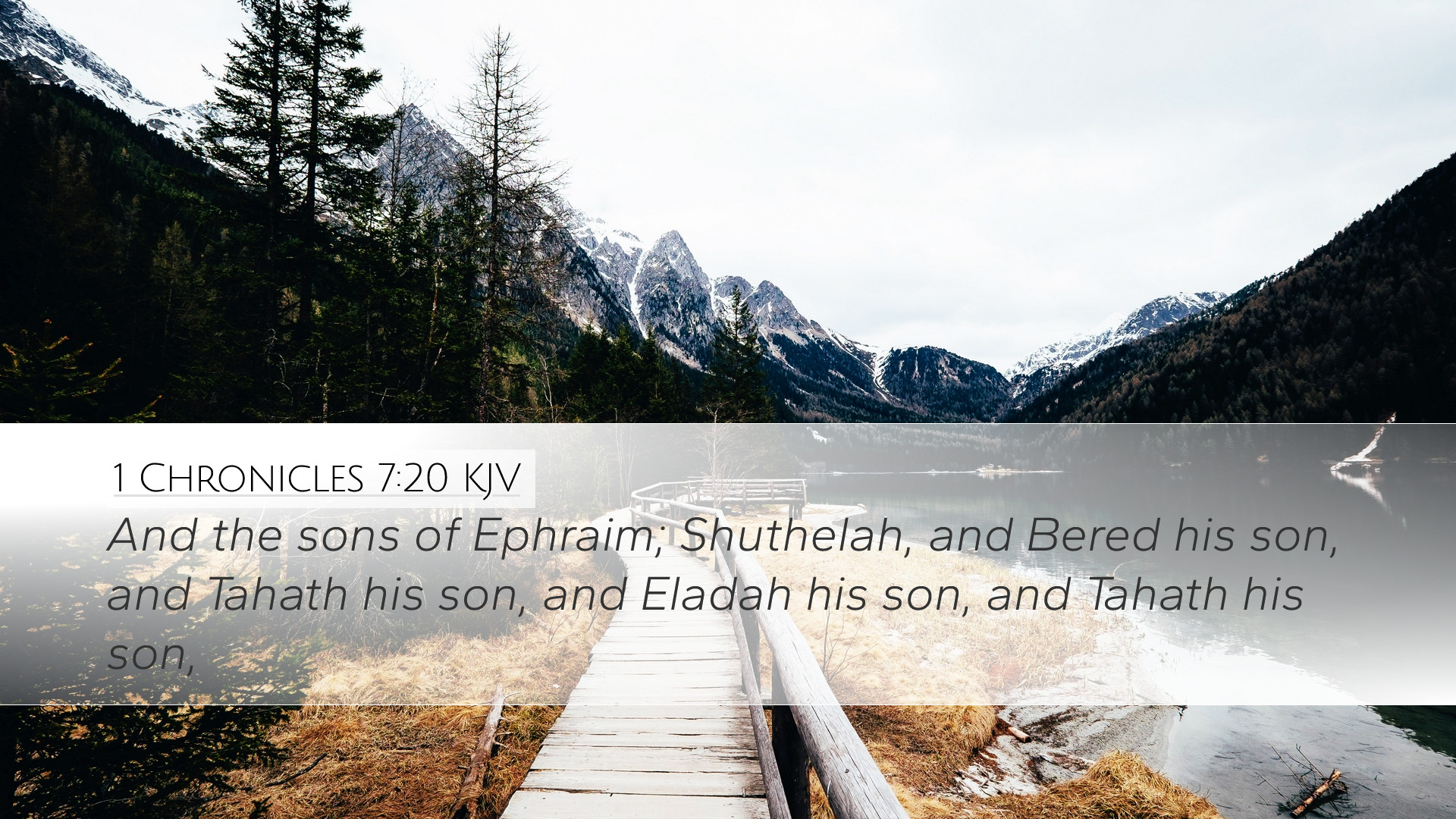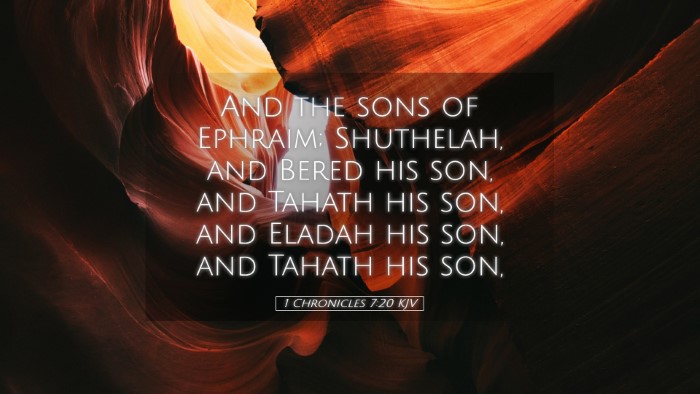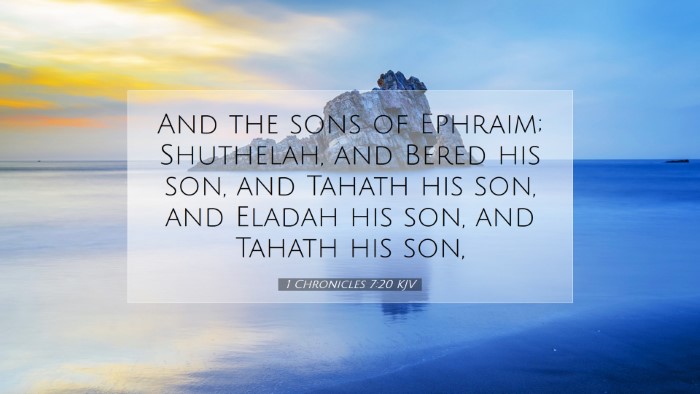Commentary on 1 Chronicles 7:20
1 Chronicles 7:20 states: "And the sons of Ephraim: Shuthelah, and Bered his son, and Tahath his son, and Eladah his son, and Tahath his son." This verse is part of a genealogical list in the Chronicles, focusing on the descendants of Ephraim, one of the sons of Joseph. Below is a comprehensive commentary derived from public domain sources that provide insights into this verse.
Contextual Background
The genealogies in 1 Chronicles serve a crucial purpose, connecting the post-exilic community back to their patriarchs and emphasizing God's faithfulness to His covenant. Ephraim, being one of Joseph’s sons, represents a significant tribe in Israel, recognized for its leadership and military strength.
The Importance of Genealogies
Genealogies in the Bible often serve to establish identity, legitimacy, and inheritance rights.
- Matthew Henry: Points out that genealogies affirm the continuity of God's plan throughout history, showing that God's promises are being fulfilled across generations.
- Albert Barnes: Emphasizes that the chronicler aims to document the tribes' origins to remind Israel of their heritage and the faithfulness of God.
- Adam Clarke: Notes that these lists, while tedious, are vital for understanding the allocation of land and responsibilities within the Israelite community.
Sons of Ephraim
Each son mentioned in this passage indicates the continuation of Ephraim's lineage and hints at their roles in the future history of Israel.
- Shuthelah: Identified as a notable descendant, his name means "sent forth," indicating a possible role in family or tribal leadership.
- Bered: His inclusion as a direct descendant emphasizes the the impact of Ephraim despite the relative obscurity of his lineage.
- Tahath: The repetition of this name signifies the family's continuity, yet might also reflect common practices in naming among the Israelites.
- Eladah: Likely signifies "God has been a witness," suggesting the role of acknowledging God's oversight in family matters.
Thematic Insights
This verse represents themes that resonate throughout the Scriptures, including:
- Legacy: The passing down of the family line presents a clear link between generations, showing that each son impacts the tribe’s destiny.
- Divine Providence: The mention of names indicates God's guidance in the lineage and God's plan for Israel through these familial connections.
- Faithfulness to Covenant: The genealogical record underscores that God remains faithful to His promises made to the patriarchs, thus reassuring future generations of His unchanging nature.
Interpretation and Application
The close examination of such genealogical verses can yield several teachings relevant for modern believers:
- Covenantal Faithfulness: Understanding the historical context reaffirms that God's promises endure through generations; therefore, believers should trust in His faithfulness today.
- Identity in Christ: Just as these genealogies established the Israelites' identity, believers today also find their identity through their connection to Christ as co-heirs in the faith.
- The Significance of Each Life: Each name listed, no matter how insignificant it might seem, matters to God. This teaches the value of every individual in His kingdom.
Conclusion
In conclusion, while 1 Chronicles 7:20 may seem like a simple genealogical note, it carries profound implications about heritage, legacy, and God's ongoing faithfulness to His people. The insights gathered from scholars emphasize the importance of understanding our roots in faith and heritage, encouraging both pastors and laypeople to appreciate the intricate workings of God throughout history and into our lives today.


